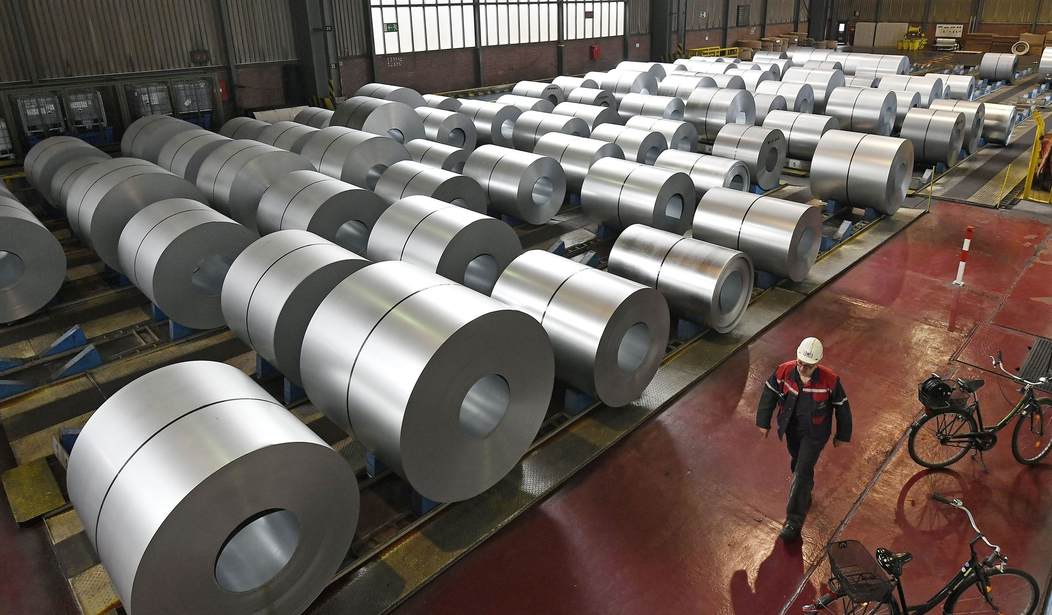In a world where the Committee on Foreign Investment in the United States (CFIUS) stands as the gatekeeper of cross-border investments, the recent proposed acquisition of U.S. Steel by Japan’s Nippon Steel Corporation has sparked a political storm. It's vital to underscore that this decision should be driven by merit, not politics, to ensure that America continues to thrive economically and strategically.
The recent calls for CFIUS intervention by some politicians risk derailing a deal that holds immense promise for the American economy. Established in 1975 and fortified by the bipartisan Foreign Investment Risk Review Modernization Act (FIRRMA), CFIUS has a crucial role in protecting national security. However, injecting politics into its decisions jeopardizes international investments that contribute significantly to U.S. job creation and economic growth.
Foreign direct investment in the U.S, totaling $5.25 trillion in 2022, is a testament to the critical role played by international partners. Politicizing the CFIUS process raises risks for multinational companies, leading to potential reductions in foreign investments, American jobs, and overall prosperity. It is imperative to let CFIUS operate as intended, ensuring that its decisions are based on expertise and unbiased evaluations rather than political posturing.
The bid by Nippon Steel to acquire U.S. Steel should be met with applause, not skepticism. U.S. Steel, facing economic challenges and an unsolicited lowball offer from Cleveland-Cliffs, sought a strategic partner for its survival. Nippon Steel's $14.9 billion bid promises significant benefits for consumers, workers, and American businesses.
Recommended
Contrary to knee-jerk opposition based on outdated sentiments, Nippon's investment will modernize U.S. Steel's technological capabilities, foster innovation, increase productivity, and improve cost efficiency. This infusion of capital will result in higher-quality steel, more efficient operations, and lower prices – a trifecta of advantages for American consumers. The deal preserves competition in the domestic steel market, preventing a monopoly that could lead to higher prices for essential goods like automotive steel and food cans.
It is essential to recognize that the strategic alliance with Japan, a close military ally, brings security benefits. Japan, the largest host nation of overseas American service members, shares the same security concerns, especially in the face of adversarial nations like China. By strengthening economic ties with Japan, the U.S. fortifies its geopolitical position and ensures a secure supply chain for critical resources.
The hue and cry over national security concerns regarding Nippon's acquisition of the U.S. Steel lack substance. Assertions made by some members of Congress lack specificity on how a Japanese-owned company harms national security, especially when Japan has been a staunch ally since 1951.
China's dominance in the steel industry poses a more substantial threat to national security than a Japanese acquisition. The deal with Nippon creates the world's second-largest steelmaker, offering a strong counterbalance to China's overwhelming manufacturing capacity. Nippon's presence in the U.S. since 1984, with a track record of responsible operations, negates concerns over security risks.
Abusing CFIUS’s regulatory powers in the review of Nippon Steel's proposed acquisition risks chilling foreign investment, a critical driver of economic growth and innovation. Opposition to the deal could trigger a ripple effect. A collapse of such a significant deal might deter foreign investors, causing them to be more risk-averse in future acquisitions, potentially hindering deeper economic cooperation between allies. The consequences of politicians attempting to obstruct these deals extend beyond economic implications, affecting broader international relations and economic growth.
Balancing security concerns with competition harms is crucial. Choosing a buyer should involve a thorough evaluation of the overall impact on national interests, considering the potential risks of both realms and maintaining a commitment to a robust, competitive market.
It is imperative to center the decision on Nippon Steel's acquisition of U.S. Steel on its merits. CFIUS should carry out its due diligence without succumbing to political pressure, ensuring a fair evaluation of the potential benefits and risks. Nippon's bid promises economic rejuvenation, enhanced security and economic ties with a longstanding ally, and competition against global steel dominance, making it a deal worth considering for America's future prosperity and security.
Andrew Langer is Director of the CPAC Foundation’s Center for Regulatory Freedom.























Join the conversation as a VIP Member